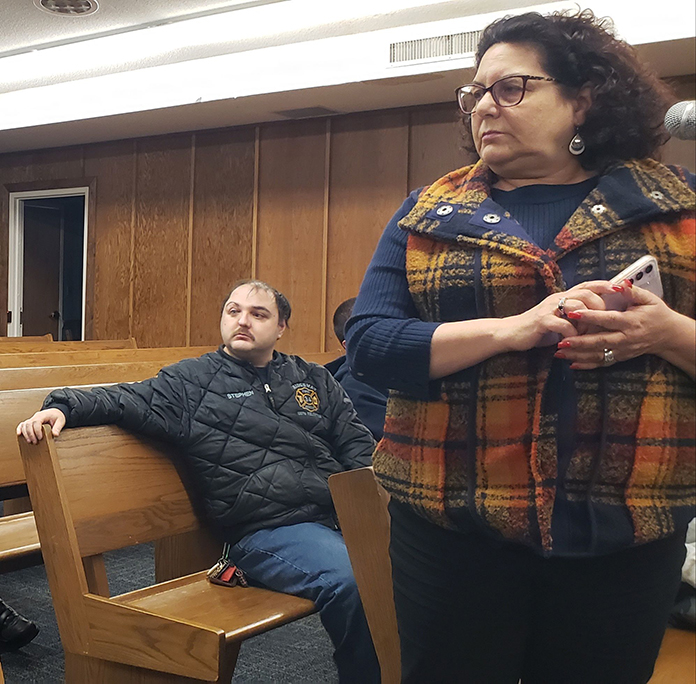
MANCHESTER – Getting something for nothing is often too good to be true and leads to a lot of questions to see if that free lunch is indeed without cost.
To that end, a presentation during a recent Township Council meeting by Gabel Associates representatives Belle Gabel and Loren Altshuler shed light on the state’s Community Solar program and how, if approved, it would work in the township.
Alshuler explained, “you’ll see a lot of commonalities starting with your GEA (Global Energy Assessment) programs that we have worked on with you.”
The GEA launched in 2012. It defines a new global energy policy agenda – one that transforms the way society thinks about, uses, and delivers energy.
Alshuler added, “Community Solar has expanded significantly throughout New Jersey for the past several years as pilot programs. Now there are some permanent programs as well,” she added. “The LMI or low- and moderate-income people and residents still face limited access. This program is helping to provide community solar options for low- and moderate-income people. This is a program that is fairly new and it is administered by the Board of Public Utilities (BPU).”
She explained that it allows people who can’t access solar from their homes to “still get solar benefits. Somebody who might be a renter or live in a multi-family and has an older roof and can’t get the financing, can still benefit from the economics and the environmental benefits of Community Solar.”
“The solar facility is located within 15 miles of your municipality within the JCP&L jurisdiction and the developer who built it the generation is then delivered to the utility which distributes the solar power across the grid. The participants are getting the financial benefit on their bill of the Community Solar participation,” she explained.
Alshuler added, “this is an interesting program that municipalities can be involved with as well. The private community has had a tough time struggling to meet the low- and moderate-income subscriber commitments that are required of this program.”
“The BPU requires at least 51% of all Community Solar programs to have participants that are low or moderate income,” she said. This program is targeted to 100% low to moderate income.
The Municipal Solar program has Gabel acting as administrator. “We develop a list of residents that are eligible and they are automatically enrolled and then there is a competitive procurement process.,” she added.
Gabel went over the timeline of the program. “We have started the process already. We held our proposers conference today. A few weeks ago we worked on the proposal and your staff discussed the important aspects of it we are asking that the respondents must show 20% savings on their electric bill.”
Gabel added, “we have multiple models where the municipality can attach itself to an existing project or originate a project. Today we had 10 attendees representing a variety of developers and responses are due on April 22.”
Gabel noted a number of people including representatives of the township would be involved in evaluating the proposals concerning matters such as “the percentage of savings and the financial security of these companies.”

An evaluation report will be issued on May 6 and an award based on the responses could be made on May 13.
Councilman Craig Wallis expressed that it seemed almost too good to be true to be able to benefit over something “by doing nothing.”
Residents Felicia Finn, Karen Perry, Judy Noonan, Judy Kuhmichel, Tom Farrell, and Gail Apgar had questions and expressed opinions about the program during the evening.
While they were pleased with most of what they heard they expressed disappointed that the initial project would be limited to an enrollment of only 700 participants.
“How are you choosing the residents to opt in? This township has at least 20,000 people that could benefit from this, how can we make this more attainable for people who really need it. It sounds like a great program but 700 isn’t enough.,” Finn said.
“You can expand it? It is not just based one project?” Wallis asked.
“How was the 700 number established? Councilwoman Michele Zolezi asked.
Gabel and Alshuler stated the program if successful could be expanded to add additional projects that would allow for adding more participants.
The choice of who the 700 selected will be is determined by Gabel Associates and Manchester. “I wish it was more,” Gabel said.






